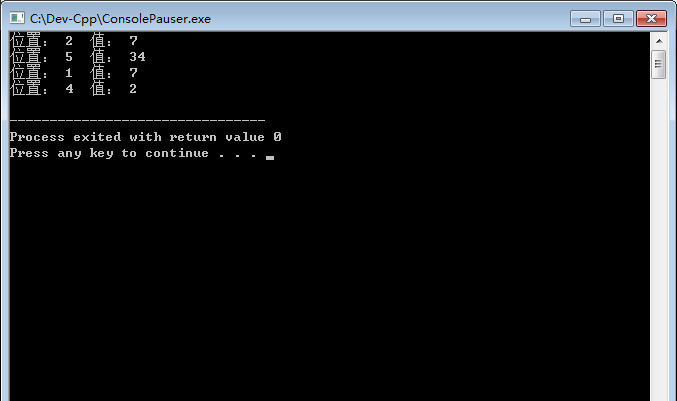lower_bound 和 upper_bound 的用法(利用二分查找的方法在一个排好序的数组中进行查找的)
在从小到大的排序数组中
lower_bound(begin,end,val) 在begin和end中的前闭后开区间进行二分查找,返回大于或等于val的第一个元素位置。如果所有元素都小于val,则返回last的位置
upper_bound(begin,end,val) 在begin和end中的前闭后开区间进行二分查找,返回大于val的第一个元素位置。如果所有元素都小于val,则返回end的位置
在从大到小的排序数组中
重载lower_bound()和upper_bound()
lower_bound( begin,end,num,greater() ):在begin和end中的前闭后开区间进行二分查找,返回小于或等于val的第一个元素位置。如果所有元素都大于val,则返回end的位置
upper_bound( begin,end,num,greater() ):在begin和end中的前闭后开区间进行二分查找,返回小于val的第一个元素位置。如果所有元素都大于val,则返回end的位置
#include<bits/stdc++.h>
using namespace std;
const int maxn=100000+10;
const int INF=2*int(1e9)+10;
#define LL long long
int cmd(int a,int b){
return a>b;
}
int main(){
int num[6]={1,2,7,7,7,34};
sort(num,num+6); //按从小到大排序
int pos1=lower_bound(num,num+6,7)-num; //返回数组中第一个大于或等于被查数的值
int pos2=upper_bound(num,num+6,7)-num; //返回数组中第一个大于被查数的值
cout<<"位置: "<<pos1<<" 值: "<<num[pos1]<<endl;
cout<<"位置: "<<pos2<<" 值: "<<num[pos2]<<endl;
sort(num,num+6,cmd); //按从大到小排序
int pos3=lower_bound(num,num+6,7,greater<int>())-num; //返回数组中第一个小于或等于被查数的值
int pos4=upper_bound(num,num+6,7,greater<int>())-num; //返回数组中第一个小于被查数的值
cout<<"位置: "<<pos3<<" 值: "<<num[pos3]<<endl;
cout<<"位置: "<<pos4<<" 值: "<<num[pos4]<<endl;
return 0;
}
